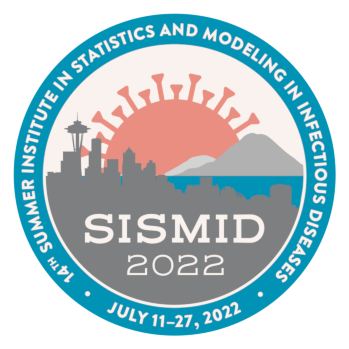Simulation-based Inference for Epidemiological Dynamics.
A short course taught with Prof. Edward Ionides as part of the Summer Institute in Statistics and Modeling in Infectious Diseases at the University of Washington in Seattle.

This short course introduces statistical inference techniques and computational methods for dynamic models of epidemiological systems. We explore deterministic and stochastic formulations of epidemiological dynamics and develop inference methods appropriate for a range of models. Special emphasis will be on exact and approximate likelihood as the key elements in parameter estimation, hypothesis testing, and model selection. Specifically, the course covers sequential Monte Carlo and synthetic likelihood techniques. Students will learn to implement these in R to carry out maximum likelihood and Bayesian inference. Knowledge of the material in the module on Probability and Statistical Inferenceis assumed. Students new to R should complete a tutorial before the module.
Course objectives
- to introduce partially observed Markov process (POMP) models as tools for scientific investigation and public health policy
- to give students the ability to formulate POMP models of their own
- to teach efficient approaches for performing scientific inference using POMP models
- to familiarize students with the pomp package
- to give students opportunities to work with such inference methods
- to provide documented examples for student re-use
